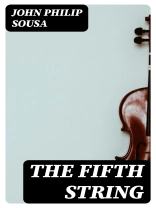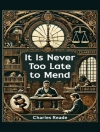In ‘The Fifth String, ‘ John Philip Sousa intertwines narrative with a rich exploration of music’s influence on human emotion and experience. Written in a lyrical style that reflects Sousa’s own mastery of composition, the novel delves into the life of a young musician navigating the complexities of love, ambition, and the pursuit of artistic integrity. Set against the backdrop of late 19th-century America, Sousa captures the essence of a transformative era in music, vividly portraying the cultural shifts and burgeoning opportunities that shaped the artistic landscape. John Philip Sousa, known primarily for his iconic marches, was also an astute observer of the American musical scene and its social implications. His experiences as a conductor, composer, and bandleader provided him with a unique perspective on the intersection of music and life. Sousa’s deep passion for the intricacies of sound and rhythm, combined with his own journey through the competitive world of performance, informed his portrayal of the protagonist’s struggles and triumphs in ‘The Fifth String.’ This captivating novel is recommended for enthusiasts of both literature and music, as it offers an enlightening perspective on the significance of melody within the broader tapestry of human existence. Sousa’s eloquent prose not only entertains but also serves as a testament to the profound connection between art and emotion, making it a must-read for anyone seeking to understand the soul’s soundtrack.
Mengenai Pengarang
John Philip Sousa (1854–1932), commonly known as ‘The March King, ‘ was an American composer and conductor primarily celebrated for his military marches. While his musical reputation remains deeply rooted in compositions such as ‘Stars and Stripes Forever’ and ‘Semper Fidelis, ‘ Sousa’s literary pursuits are lesser known but equally fascinating. In his novel ‘The Fifth String, ‘ Sousa explores the thematic intersection of love, art, and the supernatural. Published in 1902, the book tells a tale of a violinist who bargains with the spirit of Paganini for a violin with four strings that can summon fame and a fifth string that can evoke love. The narrative style of ‘The Fifth String’ reflects Sousa’s musical background, echoing the cadence and disciplined structure of his renowned marches. The novel stands as a testament to his creative versatility, offering insights into his imaginative faculties beyond the music for which he is universally acclaimed. Sousa’s contribution to the literary field, though not as extensive as his musical corpus, provides a compelling view into the cultural and artistic values of his era and is remembered as a unique expression of his multifaceted talents.












